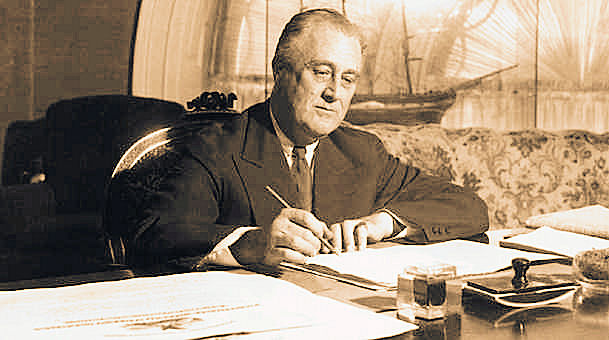October 1933
Unemployment: 22.9%
Dow Jones Industrial Average: 93
Summary:
Roosevelt being elected into Office, allowed him to finally experiment on economics and give the people what they desperately wanted; change in the situation of the great depression. As a result, Roosevelt brought down the gold standard, which he was against and enforced that by making citizens cash in their gold for paper currency, collecting the gold and thus weakening the gold standard. Silver during this time was more plentiful and many people began to advocate for the idea of adding silver to the gold standard making proposing a bimetallic system. The plan proving unfruitful and receiving much criticism, he eventually reenacted the gold standard. Roosevelt wanted to buy gold to force up the price and control depletion despite the criticism of his adviser like Morgenthau. In the following months Roosevelt also experimented with Agriculture.
Key Terms:
Glass-Steagall Act
National Industrial Recovery Act
NRA
Agricultural Adjustment Administration
AAA
Hull and Warburg
Civilian Conservation Corps
Questions:
In what ways did the AAA and the NRA help the economy?
What were the trends in Roosevelt's monetary policy?
Pictures:

Brigham Young High School History, 1931 to 1940, March 16 2015, http://becuo.com/roosevelt-great-depression

No comments:
Post a Comment